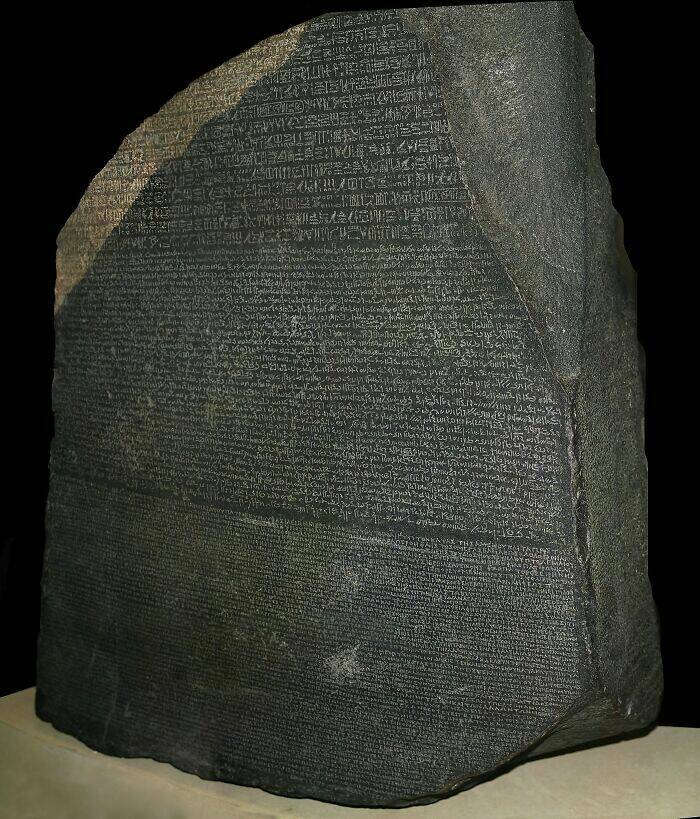Rosetta Stone (196 BC)

During Napoleon's Egypt campaign in the early 1700s, a group of French soldiers discovered a large, inscribed stone slab at Rosetta. Egyptologists quickly got to work on understanding the inscriptions. The slab and its accompanying text, which originally belonged to a temple, can be traced back to Ptolemy V's reign. The Rosetta Stone's discovery was most notable for its potential for reading Ancient Egyptian hieroglyphs.
3.

Griselda 3 year s ago
Samson,
it's interesting because nobody was able to decipher it. It was sold to Rudolf II at some point so chances are it was just faked to make money, however when they analyzed the texts there was no statistical evidence that it was just made up. It checked out as a language (from a statstical point of view) so it _may_ well be a code.
it's interesting because nobody was able to decipher it. It was sold to Rudolf II at some point so chances are it was just faked to make money, however when they analyzed the texts there was no statistical evidence that it was just made up. It checked out as a language (from a statstical point of view) so it _may_ well be a code.
4.

Dickon 3 year s ago
I think you started overusing the term "most famous artifact" when you got to #21.
#24 Mm-hm. "Detailed."
#28 Is he resting his massive chin on his... ? Impressive, indeed.
#30 No forms of entertainment? There were toys for kids, there was music, dancing, many forms of art, plays, drinking, orgies... more drinking and more orgies... that's... well, that's about it, I guess.
#33 They seem unsure. The sign reads: "Burial site of Richard III?"
#24 Mm-hm. "Detailed."
#28 Is he resting his massive chin on his... ? Impressive, indeed.
#30 No forms of entertainment? There were toys for kids, there was music, dancing, many forms of art, plays, drinking, orgies... more drinking and more orgies... that's... well, that's about it, I guess.
#33 They seem unsure. The sign reads: "Burial site of Richard III?"
9.

Polly 3 year s ago
#4 due to the fact that it had the same script written in 3 languages and one of it was ancient Greek that people can still read even today. I understand that Russia has allied with turkey against Ukraine and you russians hate anything that reminds you of Democracy, but don't be so scared to mention historical facts. After all you live in America, the land of freedom.








you haven't seen Galaxy Quest, have you?
it's interesting because nobody was able to decipher it. It was sold to Rudolf II at some point so chances are it was just faked to make money, however when they analyzed the texts there was no statistical evidence that it was just made up. It checked out as a language (from a statstical point of view) so it _may_ well be a code.
#24 Mm-hm. "Detailed."
#28 Is he resting his massive chin on his... ? Impressive, indeed.
#30 No forms of entertainment? There were toys for kids, there was music, dancing, many forms of art, plays, drinking, orgies... more drinking and more orgies... that's... well, that's about it, I guess.
#33 They seem unsure. The sign reads: "Burial site of Richard III?"
So how old was Napoleon in the early 1700s?
#10 Galileo was wrong. The 97% scientific consensus was...